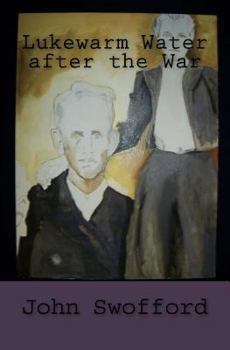Lukewarm Water after the War
In "Lukewarm Water after the War" by John Swofford, the narrator navigates life's complexities and personal disappointments against a backdrop of familial bonds and societal expectations. The story illustrates the stress of post-war life, touched by feelings of inadequacy and longing for lost opportunities, particularly the narrator's failed senatorial campaign.
The narrator's reflections bring to life the ordinary struggles of family and community interactions, touched with humor. For instance, conversations about mundane activities, like washing clothes or preparing meals, highlight the importance of everyday moments amidst chaos. There's a balance between the absurdity of situations, such as debating the efficacy of a frying pan and the longing for recognition and purpose, such as the desire to be remembered as a senator or a good father.
The use of vivid, sometimes surreal imagery resembles a stream of consciousness, drawing parallels between personal experiences and broader societal themes, like the impacts of war and the state of modern living. References to nostalgia-like playing basketball or concern for children-illustrate a palpable yearning for a simpler time, which contrasts with the harsh realities of life post-war, making the reader reflect on their meaning.
Ultimately, the narrative serves as a poignant reminder of human interconnectedness and the search for significance in a world largely defined by external pressures and personal ambitions. While the protagonist grapples with his identity following the war and his political aspirations, the loyalty and love of family, particularly from his wife and daughter, anchor him amid life's shifting tides.
The narrator's reflections bring to life the ordinary struggles of family and community interactions, touched with humor. For instance, conversations about mundane activities, like washing clothes or preparing meals, highlight the importance of everyday moments amidst chaos. There's a balance between the absurdity of situations, such as debating the efficacy of a frying pan and the longing for recognition and purpose, such as the desire to be remembered as a senator or a good father.
The use of vivid, sometimes surreal imagery resembles a stream of consciousness, drawing parallels between personal experiences and broader societal themes, like the impacts of war and the state of modern living. References to nostalgia-like playing basketball or concern for children-illustrate a palpable yearning for a simpler time, which contrasts with the harsh realities of life post-war, making the reader reflect on their meaning.
Ultimately, the narrative serves as a poignant reminder of human interconnectedness and the search for significance in a world largely defined by external pressures and personal ambitions. While the protagonist grapples with his identity following the war and his political aspirations, the loyalty and love of family, particularly from his wife and daughter, anchor him amid life's shifting tides.
Format:Paperback
Language:English
ISBN:1975886054
ISBN13:9781975886059
Release Date:September 2017
Publisher:Createspace Independent Publishing Platform
Length:252 Pages
Weight:0.64 lbs.
Dimensions:0.6" x 5.3" x 8.0"
Customer Reviews
0 rating





